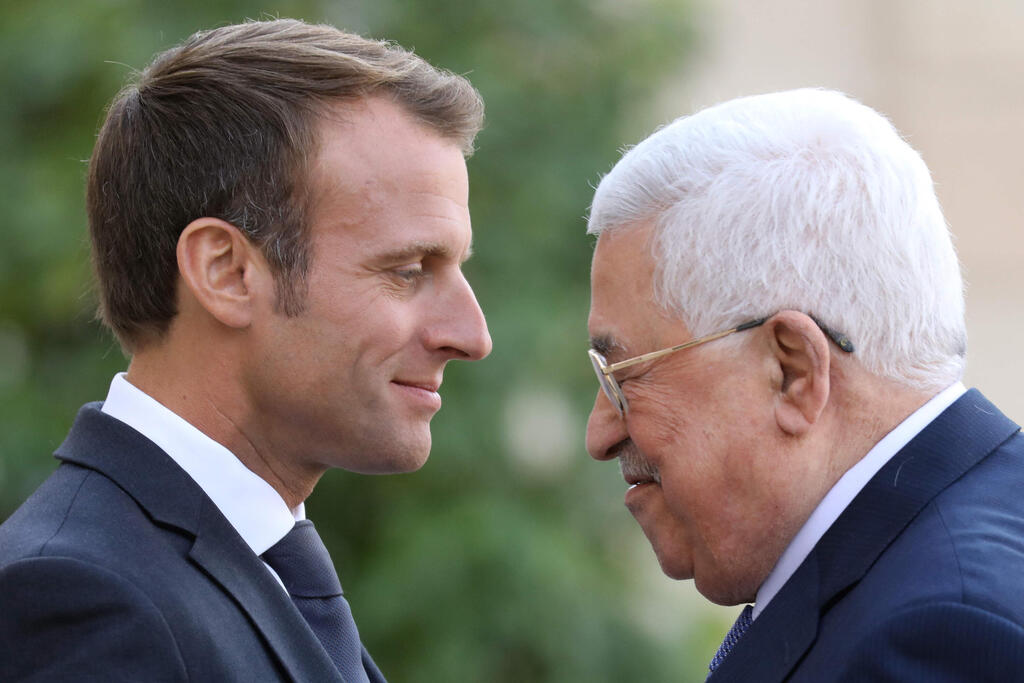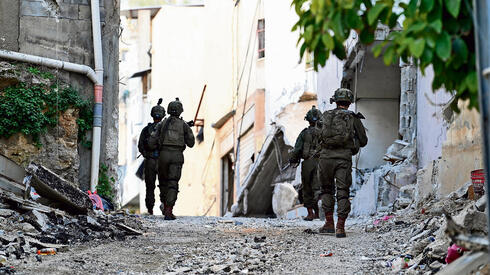The investigation into Monday’s attack in Jerusalem is still underway as Israeli forces raided the homes of the two assailants, who lived in the villages of Katana and Qubeiba near the capital, officials said Tuesday.
According to the initial findings, the attackers carried improvised weapons and knives. They entered Jerusalem through a gap in the separation barrier, boarded a shuttle used by Palestinians without permits and got off at the Ramot junction where the attack took place. The assault placed IDF Central Command on heightened alert as it prepares for what security officials warn will be a tense period.
The Jerusalem attack comes as Israel faces growing instability tied to the conflict in Gaza, expected declarations at the United Nations in support of recognizing a Palestinian state and demands by some cabinet ministers to declare sovereignty in the West Bank. Israeli security officials fear Hamas is trying to carry out attacks inside Israel by using the fighting in Gaza as motivation.
Since the start of the year, the Shin Bet security service has foiled more than 1,000 significant attacks in the West Bank, including over 550 shooting attempts and 450 planned bombings. Officials said 137 militants have been killed in counterterrorism operations, more than 2,000 weapons seized and more than 500 suspects arrested.
Israeli troops have been operating for months in the refugee camps of Jenin, Tulkarm and Nur Shams. Forces have demolished hundreds of buildings, dismantled militant infrastructure and opened more than 11 kilometers (about 7 miles) of new routes to improve freedom of movement for the army.
Defense Minister Israel Katz said forces will remain in the camps until the end of the year. Still, discussions are already taking place about what will follow, including whether residents will be permitted to return and when troops will withdraw.
The attack in Jerusalem has also reignited debate about the security barrier. In March 2022, Israel experienced a wave of deadly assaults that killed 21 people. In response, the army launched Operation Breakwater, which reinforced the barrier, filled in gaps, altered rules of engagement against infiltrators and cracked down on those helping Palestinians without permits to enter Israel.
Since the current war began, however, the government has barred most Palestinian laborers from entering Israel except for essential workers. Security officials say the policy, combined with the length of the fighting, has increased attempts at illegal crossings and weakened deterrence that had been strong in the early months of the war.
Debate over the future of the West Bank
Security officials say the West Bank is undergoing changes not seen in decades, extending beyond the military arena. Over the past two years, Israel has accelerated settlement expansion across the Green Line. That expansion has included state land declarations, the establishment of new farms and the retroactive legalization of outposts.
2 View gallery


French President Emmanuel Macron and Palestinian Presidnet Mahmoud Abbas
(Photo: LUDOVIC MARIN / AFP)
At this stage, political observers believe Prime Minister Benjamin Netanyahu prefers not to advance annexation, instead waiting to see how developments unfold at the UN. Even then, they say he is unlikely to proceed fully with such a plan.
The role of the Palestinian Authority has also come under scrutiny. Israel’s defense establishment maintains close security coordination with PA forces, while several cabinet ministers argue the Authority should be dismantled.
Security officials caution that Israel is approaching a critical decision point. “If we go back to the way things were three years ago it will be a huge waste and a missed opportunity,” one senior official said. “The reality has shifted dramatically across the Green Line. That does not mean there will not be more attacks, but the security doctrine is entirely different now.”

